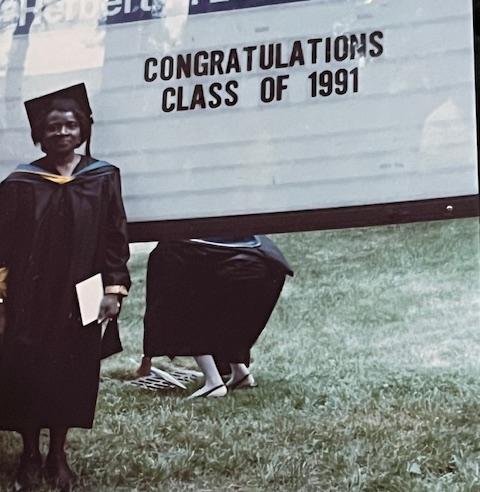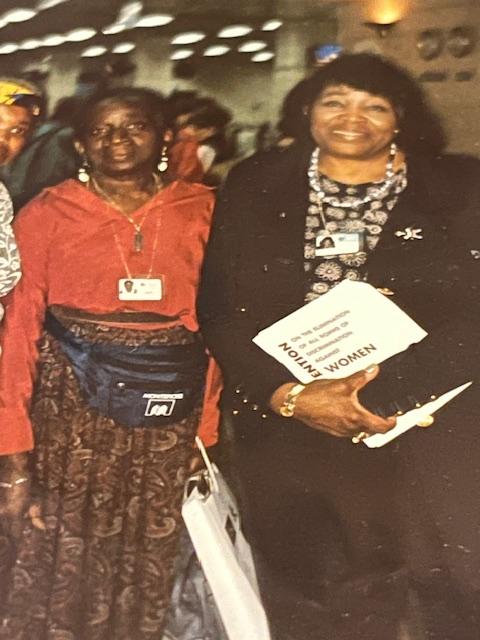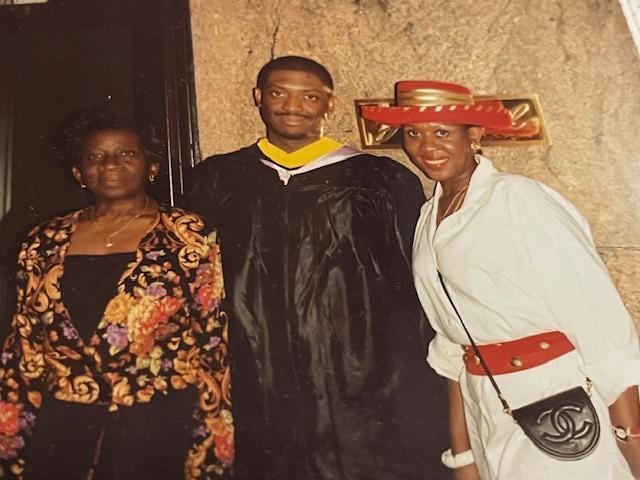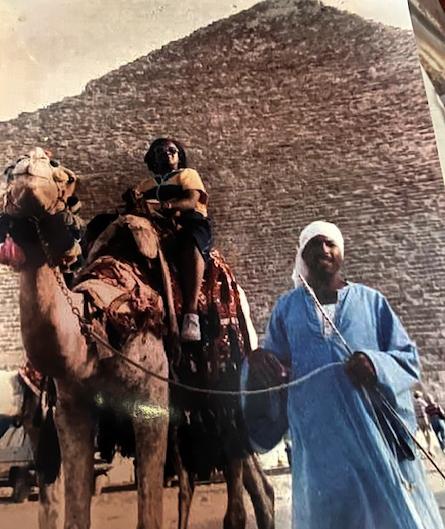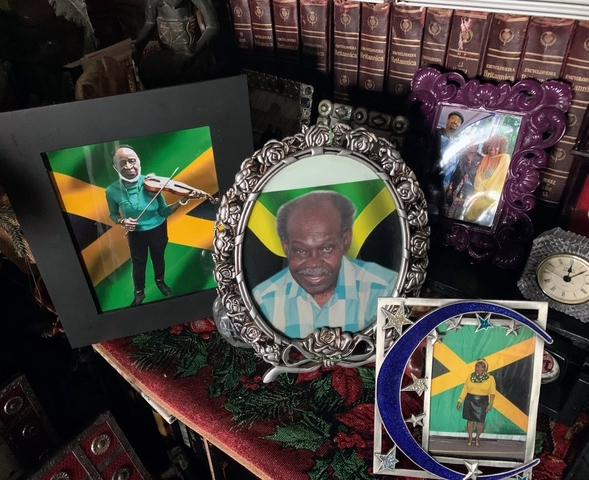








NEW YORK
Page 15 CARIBBEAN TOURISM WEEK










NEW YORK
Page 15 CARIBBEAN TOURISM WEEK
Celebrating the beauty and the people of the region, the rum, culture, music, art, dance, and food
JAMAICA
Coming from the U.S. according to Foreign Minister Johnson - commenting that national security and public safety is preserved PLANS TO RECEIVE 2,500 DEPORTEES
TRINIDAD & TOBAGO
Page 4
WARNING AGAINST ‘STAND YOUR GROUND’ POLICY
Of the government - social justice organizations fear it will cause more vigilante justice and killing in the country
Page 5
THE UWI TO SEEK INTERNATIONAL STUDENTS
In the wake of US policy restriction - highlights UWI’s quality education, friendliness of the people, and the good climate
Page 17
NEW YORK
ADRIANA YOUNGE HONOREDPOSTHUMOUSLY
At the Guyana Independence celebration In New York
Page 19
TRINIDAD & TOBAGO
TO PROBE VYBZ KARTEL PAY ISSUE
That resulted in his canceled concert performance
Page 17



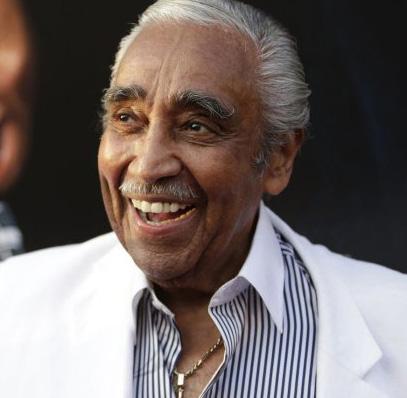
(SEE DETAILS INSIDE)
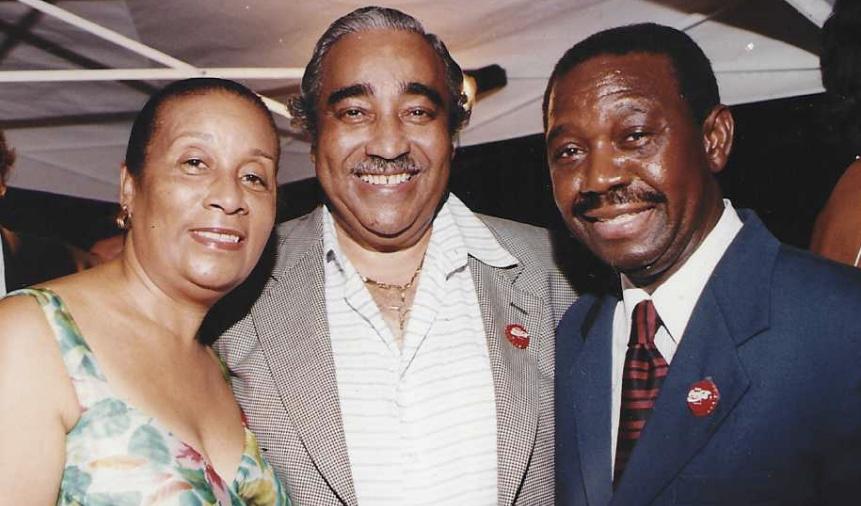
Publishers of CARIB NEWS - Karl and Faye Rodney
“Charles Rangel attended a CARICOM summit and on return summoned Faye and me along with George Dalley to plan a visit of Caribbean leaders to visit New York. He had Kathy Wylde, President of The New York City Partnership arranged a meeting with Heads of major US corporations to meet with them to discuss investment in the region. Several Prime Ministers and representatives attended a powerful and successful meeting. Nothing like this had happened before and Nothing like this since.”
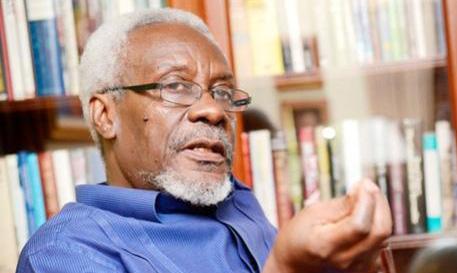
“I have witnessed firsthand Charlie Rangel’s unwavering commitment to Caribbean development. This was no mere diplomatic pleasantry. When Jamaica faced the crosswinds of global ideological turbulence and conflict our commitment to non alignment was unequivocal, Charlie provided crucial balance in Congress.”

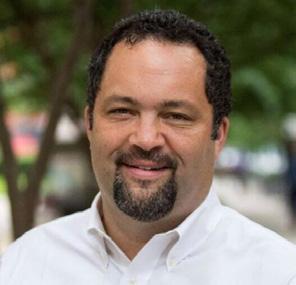
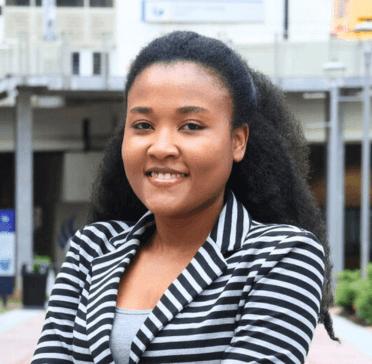
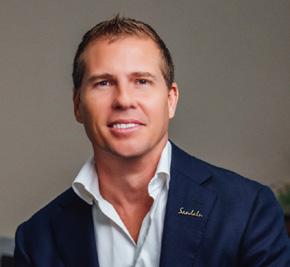
Are
Research Grant - P 17

Flash flooding in western Nigeria at the weekend has caused devastation around the town of Mokwa in Niger state, leaving more than 150 dead and 3,000 people displaced – more than half of whom are children aged 12 and under – the UN said on Monday.
Nigerian officials estimate that over 500 people are still missing and presumed dead, according to news reports.
Deputy Secretary-General Amina Mohammed, a former Nigerian Government minister, said she was heartbroken at the extent of the loss and damage.
“My deepest condolences to all those affected – especially the families who have lost loved ones. My prayers are with you,” she said.
United Nations agencies and partners are working alongside the Nigerian Government to provide essential humanitarian aid to individuals and households in Niger State who have been affected.
Beginning 29 May, heavy rains in the Local Government Area of Mokwa – known as a trading hub – prompted flash flooding which flattened entire neighbourhoods. Hundreds were killed, thousands displaced and key roads and bridges were damaged, disrupting movement and economic activity.
Sudan war exacerbates risk of cholera and malaria: UNICEF
In a report released Wednesday, UNICEF highlighted the growing threat of cholera in the war-torn country, with more than 7,700 cases and 185 associated deaths reported in Khartoum State alone since January 2025. Alarmingly, over 1,000 cases have affected children under the age of five.
Since the onset of conflict in April 2023, three million people have been forced to flee their homes, displaced internally and across the region.
While improved access to parts of Khartoum State has enabled more than 34,000 people to return since January, many are coming back to homes that have been severely damaged and lack access to basic water and sanitation services. Recent attacks on power infrastructure in Khartoum State have compounded the crisis, disrupting water supplies and forcing families to collect water from unsafe, contaminated sources.
This significantly increases the risk of cholera, particularly in densely populated areas such as displacement camps. UNICEF has implemented a multi-pronged approach to the crisis, including distributing household water treatment chemicals, delivering over 1.6 million oral cholera vaccines, supplying cholera treatment kits, and more.
“Each day, more children are exposed to this double threat of cholera and malnutrition, but both are preventable and treatable, if we can reach children in time,” said Sheldon Yett, UNICEF Representative for Sudan.
Guterres strongly condemns killing of Israeli diplomats in US capital
The diplomats were gunned down on Wednesday night as they left an event at the Capital Jewish Museum in central Washington DC, where the American Jewish Committee was hosting a reception.
They were identified as Yaron Lischinsky, 30, and Sarah Milgrim, 26, who were about to be engaged, according to officials and family members. A suspect was taken into custody.
“The Secretary-General reiterates his consistent condemnation of attacks against diplomatic officials,” the statement said.
He called for the perpetrator to be brought to justice and extended his sympathies to the families and loved ones of the victims and to the Government of Israel.
The lone suspect, identified as Elias Rodriguez from Chicago, was apprehended shortly after the murders. He shouted pro-Palestinian slogans while in custody, according to media reports. The head of a UN platform that promotes intercultural dialogue and understanding also voiced his strong condemnation.
Exponential rise in synthetic drug production and trafficking in the Golden Triangle
According to the UN Office on Drugs and Crime (UNODC), the production and trafficking of methamphetamine – an illegal synthetic stimulant – have risen sharply since 2021, particularly in Myanmar’s Shan State.
UNODC emphasised that both the scale of production and the flow of trafficking in Shan State have “significantly” increased over the past few years.
Seizures of methamphetamine in East and Southeast Asia, by region - 20152024.
A record 236 tons of methamphetamine (commonly known as meth) was seized in East and Southeast Asia in 2024, a 24 percent increase from 2023.
However, “the 236 tons represent only the amount seized” and it’s likely that much more is reaching the streets and illicit market, said Benedikt Hofmann from UNODC, describing the amount as “unprecedented.”
Seizures in Southeast Asia represent 85 per cent of the total, with Thailand alone seizing one billion meth tablets. While Thailand remains the main transit and destination point, the drug is mostly produced in Myanmar’s Shan State. Amid the ongoing civil war involving multiple armed groups, Myanmar’s military regime is experiencing instability and governance challenges that are fueling the illicit production of synthetic and other drugs.
“This combination of conflict and stability has created favourable conditions for the expansion of drug production impacting countries across the region...”
Brooklyn, NY – The late Adriana Younge, the 11-year-old girl whose tragic death in Guyana drew national and international attention, was posthumously honored on Sunday during the annual Guyana Independence Parade in Brooklyn, New York. Her parents received a special award from the United States Congress, presented on stage by New York City Council Member Chris Banks (42nd District). The tribute came as part of a ceremony organized by the Guyana Independence Committee NYC, which officially dedicated this year’s parade to Adriana’s memory.
Adriana’s life was cut short under mysterious circumstances on April 24, when her body was found in the swimming pool of the Double Day International Hotel and Bar in Tuschen, East Bank Essequibo, nearly 20 hours after she was reported missing during a family outing.
The young girl’s parents, aunt, and two siblings joined Councilman Banks on stage
to accept the congressional honor on her behalf. The emotional moment was part of a broader call for justice, as the family continues to seek answers about the circumstances of her death. Last week, they traveled to the United States for a second autopsy, conducted in Atlanta, Georgia, before attending the Independence celebrations in New York.
The parade began at noon on June 1, at the intersection of Church and Brooklyn Avenues, and made its way through Church Avenue and Utica Avenue, culminating at the Unity Concert held at 1450 Utica Avenue (between Glenwood Road and Farragut Road). Thousands of Guyanese nationals and supporters participated, many of them holding placards with Adriana’s photo and chanting, “Justice for Adriana!”
The Unity Concert featured powerful tributes to Adriana, including a poem by Guyanese activist Melissa Atwell, a dra-
matic performance, and several original songs written in her honor. Prominent U.S. officials attended the event, including House Democratic Leader Hakeem Jeffries, Congresswoman Yvette Clarke, and other state and local leaders, alongside community advocates.
The New York Guyana Independence Celebration remains the largest gathering of the Guyanese diaspora outside of Guyana and ranks as one of New York City’s most significant West Indian cultural events—second only to the annual Labor Day Parade. This year’s celebration drew thousands in person and reached over a million viewers globally via live stream and social media platforms.
The Guyana Independence Committee NYC, in a statement issued five days prior to the parade, reaffirmed its support for Adriana’s family and called for transparency and justice in the ongoing investigation into her untimely death.


Port-au-Prince, Haiti – The United States has appointed Ambassador Henry Wooster to serve as Chargé d’Affaires at the U.S. Embassy in Haiti, effective June 12. The announcement was made by U.S. Secretary of State Marco Rubio, who emphasized Wooster’s role in leading a comprehensive, interagency approach to U.S. policy in the crisis-stricken Caribbean nation.
“Ambassador Henry Wooster will take on the role of Chargé d’Affaires at the United States Embassy in Haiti beginning June 12,” Rubio said. “He will be instrumental in coordinating our whole-of-government response and working with international partners, providing critical support to Haitian security forces.”
Wooster succeeds Ambassador Dennis Hankins, who retired after a period of dedicated service during one of Haiti’s most turbulent chapters.
A seasoned diplomat, Wooster brings
decades of experience to the role, including prior service at the U.S. Embassy in Portau-Prince, a tenure as U.S. Ambassador to Jordan, and a background in the U.S. Army. Secretary Rubio praised Wooster as “the right person to lead this mission at a critical time,” citing his extensive leadership both in Washington and abroad.
The appointment comes at a time of escalating instability in Haiti, where criminal gangs—some with alleged political ambitions—have intensified efforts to destabilize the government. In recent weeks, the U.S. has re-evaluated its policy toward Haiti, criticizing the Organization of American States (OAS) for what Rubio described as insufficient action in the face of the growing crisis. In a decisive move, Washington has designated Haiti’s powerful gangs, including Viv Ansanm and Gran Grif, as foreign terrorist organizations and specially designated global terrorists. “The age of impunity for those supporting violence in Haiti is over,” Rubio stated firmly.
The Secretary of State also estimated that between 35,000 to 40,000 individuals across various criminal factions are actively threatening Haiti’s sovereignty. “It is basically controlled by organized crime,” Rubio told the House Foreign Affairs Committee, adding that the U.S. government is conducting a “substantial review” of available policy options to address the unfolding crisis.
Ambassador Wooster’s appointment is seen as a strategic move to restore stability, reassert U.S. diplomatic leadership in the region, and coordinate closely with international allies and CARICOM member states. (CMC)










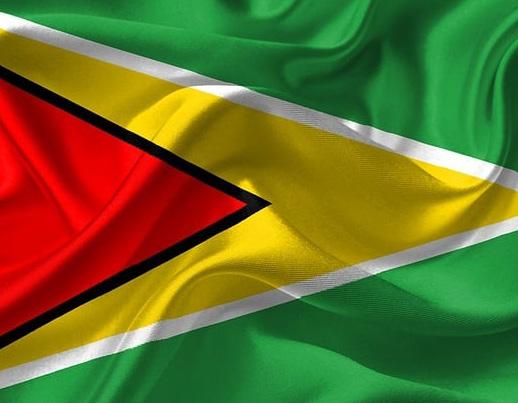
Once again, Guyana is making headlines— not for oil, but for food. The country has earned the rare distinction of being the only one out of 186 nations assessed that can fully feed its population without relying on imported food. This means Guyana is completely self-sufficient in food production, a remarkable achievement in today’s globalized and increasingly unstable food systems. The findings were published in a study featured in Nature Food and reported by Hatty Willmoth, trends editor at BBC Science Focus. The research analyzed each country’s ability to meet its population’s nutritional needs based on seven major food groups:
fruits, vegetables, dairy, fish, meat, plantbased proteins, and starchy staples. While several countries showed strengths in certain food groups, Guyana was the only country that was self-sufficient in all seven. According to the report, China and Vietnam followed closely behind, each managing to produce enough food in six out of seven categories. In contrast, Afghanistan, UAE, Iraq, Macao, Qatar, and Yemen were the least self-sufficient, producing insufficient quantities in every category.
The study found that 65% of countries worldwide overproduce meat and dairy, exceeding the actual dietary needs of their populations. However, there was a global shortfall in plant-based proteins and vegetables. Less than half of the countries produced enough legumes, nuts, seeds, and starchy carbohydrates. Alarmingly, only 24% grew enough vegetables to meet local demand.
The study was conducted by researchers at the University of Göttingen in Germany and the University of Edinburgh in the UK. They measured domestic food production against nutritional requirements based on
the WWF Livewell diet, which emphasizes a balanced, sustainable approach to eating— more plant-based foods and fewer items high in salt, fat, and sugar.
Lead author Dr. Jonas Stehl, a doctoral researcher at the University of Göttingen, noted:
“Low self-sufficiency is not inherently bad… There are valid and often beneficial reasons why a country may not produce the majority of the food it needs.”
He explained that geographic and climatic factors—such as limited rainfall or poorquality soil—can prevent nations from growing enough food. In such cases, importing food may be more cost-effective.
However, he also warned:
“Low levels of self-sufficiency can reduce a country’s capability to respond to sudden global food supply shocks such as droughts, wars or export bans.”
The research showed that Europe and South America are generally closer to achieving self-sufficiency, while small island nations, Arabian Peninsula countries, and low-income states are more dependent on imports.
Only one in seven countries were self-sufficient in five or more food groups, highlighting just how rare Guyana’s status is.
The topic of food self-sufficiency has regained attention due to global disruptions like the COVID-19 pandemic and the Russia-Ukraine war, which exposed vulnerabilities in global food supply chains. According to Dr. Stehl:
“The resurgence in interest might also reflect broader political shifts, including growing nationalism and a desire among some to reduce dependence on foreign countries.”
He emphasized that regardless of political motivations, “building resilient food supply chains is imperative for ensuring public health.”
Guyana’s achievement offers a powerful example of what’s possible when local agriculture is prioritized. As climate change, economic instability, and geopolitical conflict continue to affect food access, Guyana stands out not just as a success story—but as a potential model for others.
Kingston, Jamaica — Approximately 2,500 Jamaicans have been confirmed for deportation from the United States, according to Minister of Foreign Affairs and Foreign Trade, Senator Kamina Johnson Smith. The update was provided at a press conference held on Thursday at the Office of the Prime Minister, where the minister addressed mounting concerns following reports that 4,000 nationals were due to be repatriated as part of a U.S. immigration crackdown.
“We recognize that yesterday there was a headline in a particular publication which generated significant public interest, stating that 4,000 Jamaicans were to be returned,” Johnson Smith stated. “Allow me to be clear that 4,000 Jamaicans are not being returned now. For some time, it has been in the public domain that the U.S. authorities had close to 4,000 persons in their records with final orders for deportation against their names. It is now our understanding that approximately 2,500 have been confirmed for removal over a period of time, to be determined by logistics, their own legal processes and other factors.”
The foreign minister underscored that deportation of Jamaican nationals from the United States is neither a new issue nor a recent development.
“It is not a new phenomenon. For decades, Jamaica has facilitated the repatriation of
its citizens under established international arrangements,” she explained. “We receive our citizens when they are returned to us—just as we expect, and we do, repatriate foreign nationals who commit serious crimes or breaches of our immigration laws. We respect the rights of other countries to do so.”
Johnson Smith emphasized that the Government remains committed to honoring international obligations, while ensuring that national security and public safety are preserved.
“As immigration policies continue to evolve globally, the Government remains committed to honoring our international obligations while safeguarding national security and public safety,” she added.
In response to the expected increase in returning nationals, the Government has expanded its reintegration framework.
Johnson Smith announced the enhancement of the National Reintegration and Rehabilitation Strategy, a program designed to provide structured support to returnees.
“The Government has expanded the National Reintegration and Rehabilitation Strategy. On May 5th, Cabinet approved the establishment of a National Technical Working Group on Voluntary and Involuntary Migrants, recognising that not only is the grouping not homogenous in and of itself, but we now have a subgroup

ing of those who are returning of their own motion… and those who are being returned—those who have the decision made for them,” she said.
The working group is chaired by the Planning Institute of Jamaica (PIOJ) and over seen by the Ministries of National Security and Foreign Affairs and Foreign Trade. It comprises a broad coalition of ministries, departments, agencies, and civil society partners.
“Its mandate is to coordinate reintegration services and to ensure that returnees are supported in a structured, sustainable manner,” the minister said. “This includes their reception, verification, health checks,
security vetting, and access to social and legal support where necessary.”
Anticipating concerns among the Jamaican public about security risks associated with the returning individuals, Minister Johnson Smith reassured that robust measures are already in place.
“Monitoring and detention measures are in place. They will be applied,” she asserted. “Stakeholders play key roles in helping us as partners in this reintegration and return process, and undoubtedly, there will be further updates on these matters.”
The minister concluded by reaffirming the Government’s dual commitment to national security and the dignified treatment of all returnees.
“Jamaica remains committed, and the Government remains committed, together with our partners, to treating all returnees with dignity and fairness while upholding our national security interests. The public will continue to receive updates from the relevant ministries as developments unfold,” she said.
This development comes amid ongoing changes in U.S. immigration enforcement practices and underscores the importance of coordinated response efforts between both governments, civil society, and community agencies in managing the impact of migration on national development.
The Movement for Social Justice (MSJ) has called on the Trinidad and Tobago government to re-consider its position regarding legislation allowing for law-abiding citizens to have access to legal firearms in defense of themselves and their families.
MSJ leader, David Abdulah, told a virtual news conference on Sunday that while the new government of Prime Minister Kamla Persad-Bissessar had been given a mandate in the April 28 general election, not every voter had cast a ballot in support of the proposed legislation.
“She (Persad-Bissessar) said the people voted for this, and she has a mandate. Of course, yes, the United National Congress (UNC) and its coalition of interests party won 26 seats, however, the vote count that they got was just about 30 per cent of the total electorate – about 350,000 out of over 1,000,000 registered electors – so about 30 per cent.
“So it means while the UNC and its coalition of interests got the majority of the votes of people who cast their vote, remember the vote count was low. The turnout was only 54 per cent. So it means the majority of the population did not come out in a positive affirmative way to vote for the government. And so going forward, the government needs to listen carefully to people,” Abdulah told reporters.
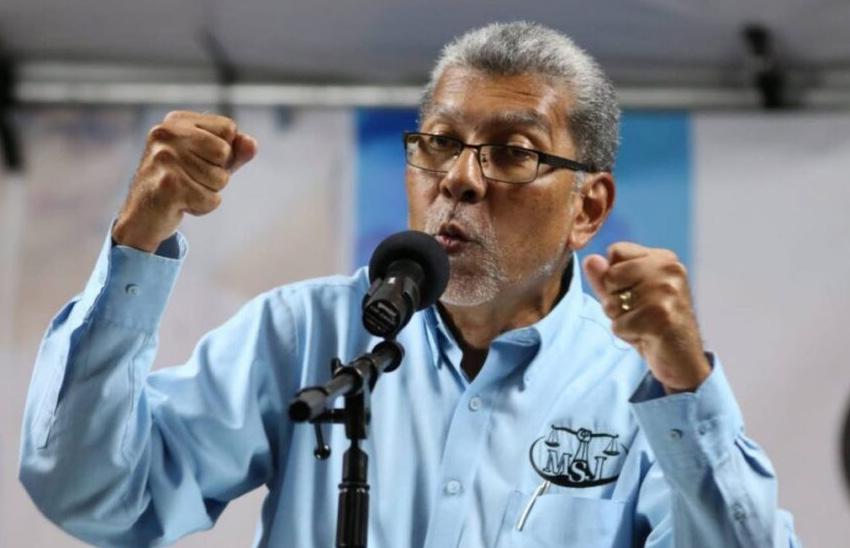
Last Thursday, Prime Minister Persad-Bissessar defended the decision of her new administration to push ahead with the legislation telling reporters that a committee will create the legislation looking at models worldwide, including from nearby Florida and that her administration would not be seeking to push the legislation on all law-abiding citizens, because as in a democracy, everyone is entitled to their position.
But she said “if criminals invade your homes, do not back down, show absolutely no mercy, and attack them with full force within the law of Trinidad and Tobago. I am fully committed to making sure the law is put in place.
“This is still a democracy and as long as I am here, it will remain a democracy,” Persad- Bissessar said, adding persons are free to voice their opinions on the matter.
“Today I am voicing mine. Many victims of home invasion have written to me about their experiences. Most victims wanted to defend their families but did not have the equal means to do it,” she said, insisting that in the first place, no one should be invading people’s homes.”
Abudulah told reporters that he believes that when the bill goes before Parliament, there needs to be sufficient time for public comment to ensure the legislation gets it right, as it has the potential to change society’s culture of violence.
“We have already the culture of violence by the criminal element and, therefore, we have to address how do we change that culture of violence that has developed and is being used by the criminal element – how do we change that or do we want to simply reinforce a culture of violence as there exists in the United States,” Abdulah said. He also disagreed with the government’s plan to base the legislation on existing Florida laws.
“That is not a state that is progressive in many respects, and I will simply leave that there. That state has enacted legislation that is really quite backward. We just put a caution there,” he said. (CMC)

As U.S. immigration policies grow increasingly restrictive for foreign students, the University of the West Indies (UWI), Mona, is taking bold steps to reposition itself as a top-tier global destination for tertiary education. In light of recent visa suspensions and ideological vetting by U.S. authorities, UWI is ramping up efforts to attract international applicants, especially those now reconsidering their educational options.
Dr. Donovan Stanberry, Campus Registrar at UWI Mona, underscored the university’s renewed push to offer a viable and vibrant alternative to traditional destinations like the United States.
“Jamaica is as good as the United States. You can come here. We have world-class
education, and when you combine that with our rich culture, the friendliness of our people, and the good climate that we have here, this is an excellent choice,” he told The Gleaner.
UWI Mona’s international recruitment strategy is structured around three key targets: local students reconsidering overseas study due to geopolitical instability, the Jamaican diaspora—particularly in North America—and new international markets, including Mexico and African nations historically oriented toward U.S. institutions.
With U.S. student visa appointments paused and ideological scrutiny intensifying—particularly under conservative U.S. policy shifts—UWI sees an urgent opportunity to widen its global footprint. Stanberry revealed that university recruiters are already making direct outreach efforts, visiting schools and engaging prospective students. The university is also boosting its digital and social media presence, alongside targeted diaspora engagement campaigns.
“As we speak, we are actively preparing for our recruitment team to go into the United States, somewhere in the week of June. There is a whole series of diaspora events in the Philadelphia-New York belt,” he noted.
Recruitment efforts are also expanding in Africa and other emerging regions.
According to Stanberry, the university is in the process of contracting agents to promote UWI in those territories.
“We are actively engaging recruiters all over Africa and in other countries; we are literally contracting them now to sell The University of the West Indies,” he added.
The University of the West Indies, Mona, currently hosts an international student population of approximately 10 percent. However, only 1 to 1.5 per cent of those students hail from outside the Caribbean. The university’s 2022–2027 strategic target is to enroll at least 1,000 international students. Stanberry assured that the campus is ready for this influx, with adequate resources and infrastructure already in place.
“We have capacity. I don’t think we need to do anything… we have over 4,000 rooms on campus, which are of the highest standards that anybody from anywhere could come and live.”
He emphasized that UWI Mona maintains a five per cent global university ranking and a reputation for research excellence. The campus also takes pride in offering a nurturing, culturally rich environment that fosters student success.
Professor Densil A. Williams, Principal of UWI Mona, echoed the institution’s commitment to global education in a recent statement.
“UWI has cultivated a legacy of producing graduates who not only excel in their chosen fields but also shape societies across the globe. We also have various programs, vibrant campus life, and a deeply rooted Caribbean heritage. The UWI, Mona offers international students a world-class education experience in a supportive and culturally rich environment,” he said.
An increase in international enrollment is also expected to improve the university’s financial standing. According to Stanberry, international students currently pay tuition fees of approximately US$15,000 per year for general undergraduate programs, compared to around US$2,510 for local students.
“The world over, in every university, international students pay more for tuition than local students. The same thing applies to the University of the West Indies. So the greater the proportion of your students that are international, the better you are in terms of revenue,” he explained.
As global education adapts to shifting immigration landscapes, UWI Mona is positioning itself not only as a backup option but as a first-choice institution— one that combines academic rigor with cultural depth, affordability, and safety. For international students looking beyond borders, the Caribbean may just be the future of higher education.
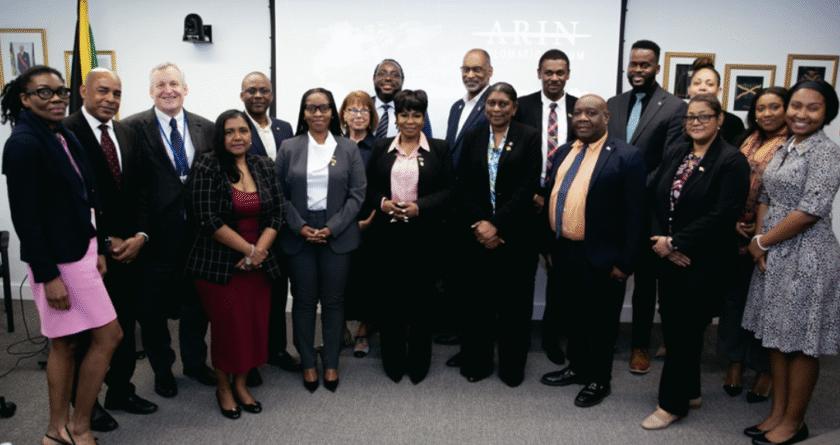
NEW YORK — In a high-tech conference room at the Jamaican Consulate in Manhattan, Caribbean diplomats gathered last week to face the urgent realities of diplomacy in the age of algorithms, artificial intelligence (AI), and digital disruption. The inaugural ARIN Diplomatic Forum brought together consular leaders from across the CARICOM Consular Corps for an interactive exchange on the future of diplomacy in the digital era. The Forum was organized by the Government Affairs Department of the American Registry for Internet Numbers (ARIN) in collaboration with the CARICOM Consular Corps, with support from the Consulates of Trinidad and Tobago and Jamaica. The event drew participation from a cross-section of Caribbean diplomatic missions based in New York City.
Mr. Bevil Wooding, a Trinidad and Tobago national, on whose initiative the Forum was held, led the exchanges. (Mr Wooding serves as the Director of Caribbean Affairs at the American Registry for Internet Numbers (ARIN), where he leads diplomatic, governmental, and international relations across the Caribbean. In this role, he engages with regional governments, regulators, and international organizations to advance Internet governance, cybersecurity, and digital transformation initiatives. He represents ARIN at key forums, such as the Caribbean Internet Governance Forum and the Connected Caribbean Summit, fostering collaboration among stakeholders. His efforts focus on advancing regional leadership capacity by shaping policy discourse, and fostering inclusive, facilitating regional and international knowledge sharing, and multi-stakeholder engagement to support development and governance across the Caribbean. )
The presence of senior officials from two major internet organizations, ARIN and ICANN, sent a strong signal: the Caribbean is not a peripheral player in global digital affairs. With the region’s unique challenges and growing digital ambitions,
the event highlights how Caribbean voices are increasingly central to shaping Internet governance, cybersecurity, AI and data policy on the world stage.
Expert Insights on Governance and Risk
The Forum also featured expert contributions from Leslie Nobile, ARIN’s Senior Director of Trust and Public Safety, and two senior officials from the Internet Corporation for Assigned Names and Numbers (ICANN) — Alexey Trepykhalin and Veni Markovski.
“Diplomatic communities must understand how evolving threats to digital infrastructure can compromise national interests,” said Nobile. “Capacity building in Internet governance must be a priority — especially for small states.”
Voices from the Region
The presentations reinforced the importance of having Caribbean voices and perspectives represented in global Internet governance discussions. These global themes found powerful resonance in the voices of regional leaders.
The Honourable Alsion Wilson, Consul General of Jamaica, emphasized digital competence in foreign service: “Digital literacy is now essential to effective representation, both in the advancement of foreign policy and in delivering responsive, modern consular services.”
The Honourable André Laveau, Consul General of Trinidad and Tobago, highlighted the importance of digital training: “In a world shaped by geopolitical shifts and fast-moving technological innovations, our diplomats must be prepared to lead, adapt, and advocate with confidence.”
The Honourable Jeremiah Hyacinth, Consul General of Saint Lucia, underscored the regional impact: “Sessions like these are vital for helping our foreign service professionals navigate and lead through the complexity of the digital age.”
In the words of Technology Attorney, Rhonda Binda, Esq., who is also CUNY Adjunct Professor of Smart Cities and a former U.S. Diplomat, “The ARIN Dip-
lomatic Forum was a powerful reminder of the importance of international cooperation in shaping the future of internet governance. The discussions underscored how critical it is for global stakeholders to collaborate on issues like digital sovereignty, access, and infrastructure resilience. It was an honor to be part of a dialogue that directly influences how the internet evolves for the public good.”
The ARIN Diplomatic Forum is part of a broader initiative to support Caribbean missions in building capacity and strengthening engagement on digital policy, cyber diplomacy, and data governance. The gathering offered a space for open, practical dialogue. Participants shared how they’re navigating the rapid evolution of digital tools and expectations in their daily work. Many reflected on the resonance of the keynote presentation.
“The feature address brought clarity to the urgency of rethinking how we engage as nations and as a region,” said one diplomat. “The concept of ‘platform diplomacy’ and
the influence of non-state digital actors struck a chord,” another attendee added. “We must now factor in tech giants and algorithms when considering national interest and global representation.”
The next ARIN Diplomatic Forum is scheduled for November 2025 in Washington D.C., alongside plans for a complementary virtual session to expand access to critical discussions on cybersecurity, AI governance, and digital policy coordination. “This was more than a symposium; it was a platform for shaping the future of Caribbean diplomacy in a digital world,” said Consul General Laveau. “We are deeply appreciative of the work being done by ARIN and look forward to building on this momentum.”
As the digital era continues to redraw the map of diplomacy, the Caribbean is not standing on the sidelines. Through platforms like the ARIN Diplomatic Forum, the region is asserting its voice — and shaping its digital future — with clarity, confidence, and strategic purpose.


NEW YORK and PITTSBURGH – Gary Edwin Robinson, head of the Theatre Arts Program at Boys and Girls High School in Brooklyn, N.Y., has been selected as the 2025 winner of the Excellence in Theatre Education Award. The award, co-founded by Carnegie Mellon University, the American Theatre Wing and The Broadway League, will be presented at the 78th Annual Tony Awards in New York City on Sunday, June 8.
Robinson has been a champion for expanding access to an education in the arts for all students, often bridging the gap for underserved communities. He has inspired his students to set goals beyond the stage and to imagine greater possibilities for their futures by highlighting the value of higher education.
He has developed programming opportunities to expose students to real-world opportunities and art. Through the Career and Technical Education pathway, students can shadow Broadway professionals, gaining technical and soft skills and confidence to pursue careers in theatre or whatever industry their passions lead. He has also collaborated with other programs to take students to see on and off-Broadway shows, feature films and even college tours.
“Edwin’s dedication to empowering the next generation of artists, both on and off the stage, is both profound and inspiring,” said CMU President Farnam Jahanian. “Carnegie Mellon University is thrilled to help recognize his impact in arts education and to celebrate his record of equipping students with the skills, confidence and community needed for lifelong success.”
The Excellence in Theatre Education Award recognizes a K-12 theatre educator in the U.S. who has demonstrated exemplary impact on the lives of students and who embodies the highest standards of the profession. Robinson will receive $10,000 for the Theatre Arts Program at Boys and Girls High School in Brooklyn and tickets to The Tony Awards and Gala. Robinson’s students will also receive a visiting Master Class taught by CMU Drama professors.
“Edwin not only delivers a powerful arts curriculum in the classroom, but he also brings students to meet the arts where they live onstage, backstage, in the community and in the world,” said Jason Laks, president of The Broadway League and Heather Hitchens, president and CEO of
the American Theatre Wing. “We’re thrilled to celebrate Edwin’s commitment and accomplishments with the 2025 Excellence in Theatre Education Award.”
Robinson attended P.S. 147 Elementary School and graduated from Andrew Jackson High School in Queens, focusing on music and art. He played the flute and was a second baritone in the school’s choir. Robinson went on to the Dance Theatre of Harlem and then to Howard University, where he earned his BFA in theatre education. “I get up and go to work, but it’s theatre to me,” Robinson said. “It’s very special when you see talent in young people, and they go on to colleges and universities to major in theatre arts. I knew from an early age this is what I wanted to do, and I want to help others find their way.” Tony, Emmy, and GRAMMY Award-winner and threetime Oscar nominee Cynthia Erivo will host The 78th Annual Tony Awards, which will honor the incredible artistry of the 2024-2025 Broadway season. This year’s ceremony will return to the legendary Radio City Music Hall in New York City, broadcasting LIVE to both coasts on Sunday, June 8, 2025 (8:00 – 11:00 PM ET/5:00 – 8:00 PM PT) on the CBS Television Network, and streaming on Paramount+ in the U.S.*.
For more information about CMU and The Tony Awards, visit cmu.edu/tony-awards.

Bronx Councilman Kevin C. Riley, family, friends and reggae music enthusiasts gathered in the Bronx recently to honor and salute Jamaican-born, Bronx-based record store owner Earl Moodie by renaming the corner of Whites Plains Road and 225th Street in his honor: ‘Earl Moodie’s Way.’
A towering figure in the reggae music scene, Mr. Moodie is best known as the founder of Moodies Records, a legendary hub for reggae vinyl records and culture that became a cultural bridge between Jamaica and New York City. For more than four decades, Moodies Records served
as a vital pipeline, bringing the sounds of Jamaica and the Caribbean to the streets of the Bronx and beyond.
Councilman Riley, who in partnership with the Moodie’s family helped to orchestrate the street renaming shared, “I’ve known about Moodies Records since I was a child. My dad and I used to visit the store often, spending time together listening to music. It was always powerful to watch him connect with his friends. Music was the driving force that brought them together and created a sense of fellowship and community,” he said.
“People truly understand how much this business meant to all of us,” reiterated Avril Francis, Community Liaison for Councilman Riley.
Reggae singer Richie Stephens, who first met Mr. Moodie nearly 30 years ago praised the business stalwart saying, “His influence resonated far beyond the walls of his iconic music store in the Bronx. He committed himself to promoting reggae music and fostered a space where music lovers and artists like myself could gather and interact over shared rhythms and stories. The renaming of 225th Street stands as a powerful symbol of cultural pride and community appreciation, ensuring that Moodie’s contributions to reggae
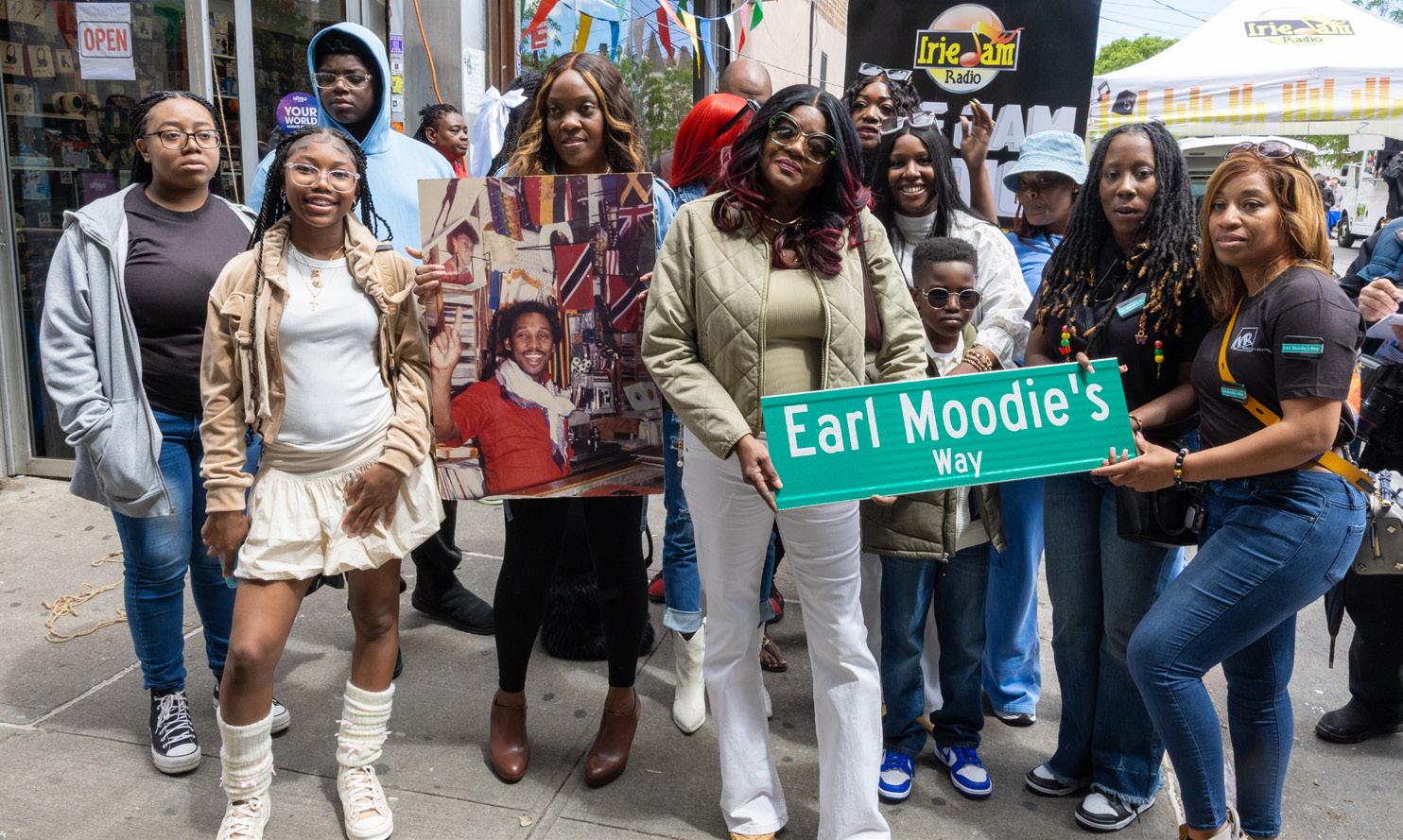
music and the Bronx community will be remembered for generations to come,” he explained.
Syntyche ‘Syn’ Clarke, Vice President of Queens based Irie Jam Radio, who anchored a live broadcast from the renaming event spoke about Mr. Moodie’s life and legacy.
“It’s about recognizing the impact of those who often work behind the scenes to uplift our people, celebrate our roots, and build bridges for future generations,” Clarke shared.
“Naming this street ‘Earl Moodie’s Way’ stands as a reminder of the importance of acknowledging our community leaders both while they are with us and after they’re gone. Mr. Moodie embodies what it means to chase purpose, live with intention, and leave the world better than you found it,” she added.
Earl Moodie died on September 17, 2021 after a brief illness. He was 69 years old.

Caribbean Tourism Week 2025, taking place from June 1 to June 6 in New York City, is more than a date on the calendar—it’s a celebration, a strategy session, and a lifeline. Organized by the Caribbean Tourism Organization (CTO), the week brings a burst of island spirit to one of the world’s busiest metropolises, and in doing so, makes a powerful statement: the Caribbean is open, vibrant, resilient, and absolutely essential to the global tourism map.
Tourism is not a side hustle in the Caribbean—it’s the economic engine that keeps the region running. For many of the islands, tourism contributes between 30% to 80% of GDP. That’s not hyperbole—it’s survival. In places like Antigua and Barbuda, it accounts for more than 60% of national income. In Jamaica, it fuels approximately 35% of GDP and employs over 300,000 people. These are not just jobs in resorts and restaurants; these are farmers supplying local food, artisans creating cultural products, taxi drivers, tour guides, musicians, chefs, and so many more. Tourism is the connective tissue of the Caribbean economy—it touches everything.
And yet, tourism is about more than just numbers. It’s about identity, history, and culture. This year’s Caribbean Tourism Week in New York features the inaugural Caribbean Cultural Showcase, designed to highlight the region’s soul: its music, dance, cuisine, art, and fashion. Events like these don’t just sell a destination—they sell a feeling. When you hear the steelpan, taste jerk chicken, or dance to soca, you’re not just a visitor—you’re part of something
larger. That cultural immersion is what brings people back again and again. And in an era of AI and virtual everything, real experiences matter more than ever.
Equally important is the Caribbean diaspora. For millions of Caribbean nationals living abroad—particularly in the United States, Canada, and the UK—Tourism Week is personal. It’s not just a marketing event; it’s a reconnection. It’s a moment of pride. New York’s Caribbean population is deeply invested in the region’s future. They’re not just sending remittances— they’re traveling home, investing in property, and encouraging others to experience the Caribbean they know and love. They are our most loyal visitors and our most passionate advocates.
This is where Carib News comes in. For decades, Carib News has served as a powerful bridge between the region and its diaspora. Through its newspaper, digital platforms, social media channels, and events, Carib News has kept Caribbean nationals abroad informed, engaged, and connected. Its work goes far beyond journalism—it is advocacy, cultural preservation, and economic development wrapped into one.
The Caribbean Multi-National Business Conference (CMBC), a flagship initiative of Carib News, has also played a pivotal role in this ecosystem. Bringing together government leaders, business executives, investors, academics, and community leaders, CMBC has helped to spark real conversations and real action. Whether it’s connecting tourism ministers with diaspora investors, showcasing small businesses with global potential, or simply crea-
t-ing a space for regional collaboration, CMBC has been steady, reliable, and effective. In many ways, it has done what regional integration talks often fail to do: bring people together around shared interests and get things done.
Tourism ministers from across the English-speaking Caribbean have been vocal about the importance of these efforts.
Jamaica’s Minister of Tourism, Edmund Bartlett, recently noted that “tourism represents a path to empowerment, job creation, poverty alleviation, and the preservation of cultural heritage.” He emphasized the urgency of sustainability, warning that the region must “build resilience against climate shocks while expanding our tourism footprint in a responsible way.”
In the Turks and Caicos Islands, Minister Josephine Connolly reported record-breaking tourism performance, calling it a testament to “vision, planning, and collaboration.” She noted the crucial role of diaspora travelers and the importance of strategic partnerships like Virgin Atlantic’s direct flights from London to Providenciales, which helped propel the islands to be named the world’s best-performing destination in 2023 by the UN World Tourism Organization.
Antigua and Barbuda’s Minister Charles Fernandez spoke with similar optimism, pointing out that his country had not only recovered from the pandemic downturn but had exceeded pre-COVID tourism numbers. “It is the strength of our people and our product,” he said, “that keeps the world coming back.”
Of course, resilience is a word often used when discussing the Caribbean—and
KARLISA
for good reason. This is a region that has weathered storms, literal and figurative. From hurricanes to health crises, the islands have shown time and again that they can bounce back. But resilience shouldn’t be the only narrative. The Caribbean is also about innovation, creativity, and leadership. It’s about building forward, not just back.
Caribbean Tourism Week reminds us that the region is not a monolith—it is a mosaic. Each country has its own charm, its own challenges, and its own story to tell. But collectively, the Caribbean remains one of the most desirable destinations on the planet. The goal now is to protect that status while growing in a way that benefits everyone, from the hotel owners to the fisherfolk to the returning diaspora.
As we celebrate Caribbean Tourism Week 2025, let us recognize the urgency behind the festivity. This is not just a party—it is a platform. It is a time for celebration, yes, but also for reflection and recommitment. The people of the Caribbean deserve a future that honors their past and builds on their present.
Carib News is committed to driving tourism in the Caribbean through the publication and initiatives like the Caribbean Multi-National Business Conference (CMBC). The ongoing dedication of tourism leaders across the region, that future is not just a dream—it’s within reach. And if the Caribbean has taught the world anything, it’s that when passion meets purpose, there’s no limit to what can be achieved.
by Karl and Faye Rodney
Michael Manley, elected Prime Minister of Jamaica in 1972, and Charles Rangel, elected to the U.S. Congress sometime earlier, had a conversation and both hit it off. Michael decided to invite Charlie to Jamaica and asked me to arrange the visit. At that time, I was President of the Jamaica Progressive League, which played a significant role in Michael Manley’s victory. Sure enough, Charles Rangel called me to arrange the visit to Jamaica as promised by Michael Manley. This was around 1974 time period. I made the travel arrangements and agreed to meet Charlie Rangel at the airport with his travel documents. I was meeting him for the first time, and we spent some time together in the lounge and had a wonderful conversation. He was intrigued by Michael Manley and showed genuine interest in Jamaica and in the Caribbean. Charlie went to Jamaica, had a great time with Michael Manley, and we established a relationship that has lasted over 50 years. The friendship with Michael lasted until Michael’s death.
Charles Rangel is known for his visionary politics on the national scene, but he was just as impactful on the international scene. On Michael Manley’s visits to New York, especially when he was at the UN, he would ask to be in touch with Rangel. I was tasked with that and attended their meetings; it was all international. They were both very staunch opponents of the apartheid regime in South Africa. While Michael Manley’s role is well known, Charles Rangel’s role in removing the tax shelter for U.S. businesses operating in South Africa was a stroke of genius, hitting them in the pocketbook. The companies started moving out, and apartheid crumbled. This is common knowledge, but not widely known. Mandela knows
because he called Rangel publicly a `legislative genius’.
With the founding of CARIB NEWS in 1982, Rangel was delighted and supportive. He felt that now he had a reliable source of information from the Caribbean and did not have to depend on the State Department. He made it his regular practice to insert information from CARIB NEWS officially into the records of the U.S. Congress. CARIB NEWS soon became the most quoted Black paper in the Congressional Records. On more than one occasion, he got me on the phone to brief the members of the Clinton administration on matters relating to the Caribbean.
When we organized the Annual Caribbean Multi-National Business Conference in 1995, it was not only welcomed by Charles Rangel, but through Lloyd Williams of the Greater Harlem Chamber of Commerce, it was welcomed by the Gang of Four: Percy Sutton, Basil Patterson, David Dinkins, and Charles Rangel. It became the touchpoint of the collaboration for the developing markets of the Caribbean and the emerging markets of the U.S. and the African Diaspora. Charles Rangel supported the concept and saw the value for the U.S. in strengthening this relationship. He regularly attended the conferences and was very responsive to the needs of the region.
From his participation in the conference, we were able to get secure his invitation to a CARICOM summit meeting, where he attended. On his return, he summoned Faye and me to his office, along with George Dalley, to plan the visit of Caribbean leaders to New York for the purpose of attracting investors and getting congressional support for it. And so it was done. A private breakfast was arranged with
the New York City Partnership through their President Kathy Wylde, where all heads of major U.S. corporations were present, and several Prime Ministers or their representatives had an opportunity for direct contact. Cathy Wylde offered to do any and all follow-ups needed.
Charles Rangel was aware of the Chinese effort in the region and thought the conference and these kinds of meetings would be a good counter.
We organized a luncheon at the New York Hilton for businesspeople in the diaspora to meet U.S. businesspeople. The room was packed. I chaired the meeting, Charles Rangel was the featured speaker, and Nancy Pelosi was streamed in to talk about the value of the effort of the conference and this meeting, Rangel’s vision and effort. Nothing like this had happened before, where the level of contact was organized, and nothing like this has happened since.
When Colin Powell and Condoleezza Rice threatened Prime Minister P.J. Patterson for allowing Aristide, the deported President of Haiti, to land in Jamaica, I was made aware of it and called Charles Rangel by the next morning. He and other members of the Congressional Black Caucus issued a firm statement backing the action of the Prime Minister and offered their full support.
The Congressional Black Caucus, of which Rangel was a founder, awarded their highest honor to Prime Minister P.J. Patterson at their annual gala before thousands of people in recognition of the courage and principle of defending his country’s integrity and sovereignty. To the best of my knowledge, P.J. Patterson is the first and only Caribbean leader to be
offered this honor.
In referencing the Annual Congressional Black Caucus (CBC) weekend of events and gala, this is the Black event of the year. Charles Rangel would invite Faye and me to sit at one of his two tables.
Because he is a founder, his table was right up front. We were in a privileged area, he always was so admiring and responsive.
Through the years, Charles Rangel was supportive in many undertakings—from support for Carnival in Brooklyn to the re-launch of the American Foundation for the University of the West Indies, the Caribbean Tourism Organization Foundation, both of which I chaired. He was generous with his support. He was also a frequent participant in the CARIB NEWS board meetings, both as a guest and speaker. At one of the editorial board meetings with thenPrime Minister Portia Simpson Miller, after the formal meeting, Portia requested a private meeting with Rangel, Belafonte, and me. She was passionate about the pressure being exerted on her over Jamaica’s relationship with Hugo Chávez in Venezuela on the PetroCaribe deal. She got the real deal between Rangel and Belafonte and was assured by Rangel that the CBC would back her. That’s the kind of person Charles Rangel was.
Charles Rangel was a Black man when real power and right-wing extremists were terrified of such a person, hence the campaign of the unholy alliance to destroy his character. They waged an unrelenting campaign to remove him. He became a sacrifice to please the right, using him to feed the enemy. The enemy is never satisfied. Charles Rangel was a decent, honest man and a credit to humanity, one we can all be proud of.
by Ben Jealous
The smoke has already arrived. This past week, thick plumes from wildfires in Manitoba and Saskatchewan have drifted into the US, triggering air quality alerts across the Midwest. Cities like Milwaukee, Madison, and Chicago are experiencing hazy skies and dangerous air conditions, with the Air Quality Index reaching levels unhealthy for sensitive groups. Fire has always helped shape our forests, especially in the West. But those forests have evolved around natural frequencies and intensities of fires. What we are seeing now is new. This early-season smoke is a stark reminder that fire season is no longer confined to the West or wild areas, and more intense and longer-lasting fire seasons are the new normal.
Megan Paxman says she lives “in a state of constant anxiety every wildfire season.” A mother to a son with asthma in Alberta, Canada, she wrote on the Canadian Broadcasting Corporation’s website about her experience on Mother’s Day 2023.
“My four-year-old son has been sleepy and unwilling to eat all morning. I notice that the skin between his ribs and at the baseof his throat is pulling in between every inhale.”
When Paxman called the local general health information service, a nurse told her, “get him to the hospital now.”
“The second I get a whiff of that telltale smell, I go into super-watchful mode,” Paxman says. “I’m obsessively checking the local air quality levels and his breathing while watching for
haze on the horizon or an orange tint to the light.”
That haze and orange tint are becoming more familiar for Americans from California to the Great Lakes to the East Coast.
As of May 30, the US had recorded over 27,700 wildfires this year – 33% more than the 10-year average for this time of year. The devastating fires in Southern California this past January reminded us that the areas threatened directly by wildfires are increasing, with major cities no longer safe. The conditions that gave rise to those fires – including the Palisades and Eaton fire which destroyed more than 18,000 structures and claimed at least 30 lives – were exacerbated by climate change. That’s how it is around the world as well, where the global area considered “fire-prone” is projected to grow by 29% by the end of the century.
Aside from fires’ destructive impacts, the health impacts of wildfire smoke are profound. Fine particulate matter (PM2.5) from these fires can penetrate deep into the lungs, leading to respiratory issues, heart problems, and other serious health concerns. Children, the elderly, and individuals with pre-existing conditions are particularly vulnerable. In some areas affected by the recent Canadian wildfires, residents have been advised to stay indoors and limit outdoor activities.
Rising temperatures, prolonged droughts, high winds, and certain extreme weather events create the perfect conditions for wildfires to ignite
and spread rapidly. But despite the growing risks, recent decisions by the Trump administration have undermined our ability to respond effectively.
Staff and budget cuts to key agencies responsible for forest management and wildfire prevention threaten to leave us even more vulnerable and less prepared. Additionally, harmful legislation like the Fix Our Forests Act threatens to weaken environmental protections and prioritize logging over sustainable forest management that could actually help address forest fires.
We need a comprehensive approach to address this crisis. This includes investing in forest restoration, supporting fire-resistant – and resilient – infrastructure, and policies that drastically reduce greenhouse gas emissions. Public education campaigns can also play a crucial role in promoting fire safety and preparedness. There is no safe level of exposure to wildfire smoke. It is 10 times more toxic to our health than standard air pollution from the burning of fossil fuels, and there’s no safe level of exposure, According to a multinational studies reported in the science journal Nature, wildfire-specific PM2.5 increased the risk of hospitalization for a range of respiratory illnesses from asthma to the flu. That’s especially true for people under age 19 or older than 60. Compared to PM2.5 from other sources, wildfire-specific PM2.5 led to a greater risk of hospitalization for all respiratory diseases.
Do a quick search online about the impact of wildfire smoke and you’ll see countless articles from public health experts, pediatricians, and other doctors about ways to avoid PM2.5 exposure or the signs that indicate you should see medical care. But isn’t it a better solution to address the actual cause of more, bigger, stronger wildfires, and the deadly pollution they bring? To make it so the air is not so toxic that kids with asthma essentially have to shelter in place deep in their homes during the very months they should be playing outside?
Communities across the country must come together to demand action. We must hold our leaders accountable and push for policies that prioritize public health and environmental sustainability. The challenges are immense, but with collective effort and determination, we can build a more resilient future.
In the meantime, preparedness is key. Stay informed about local air quality conditions and have an evacuation plan in place. But let’s not forget to support initiatives aimed at eliminating fossil fuels and mitigating the impacts of climate change. Our health, our homes, and our planet depend on it.
Ben Jealous is the Executive Director of the Sierra Club and a Professor of Practice at the University of Pennsylvania.
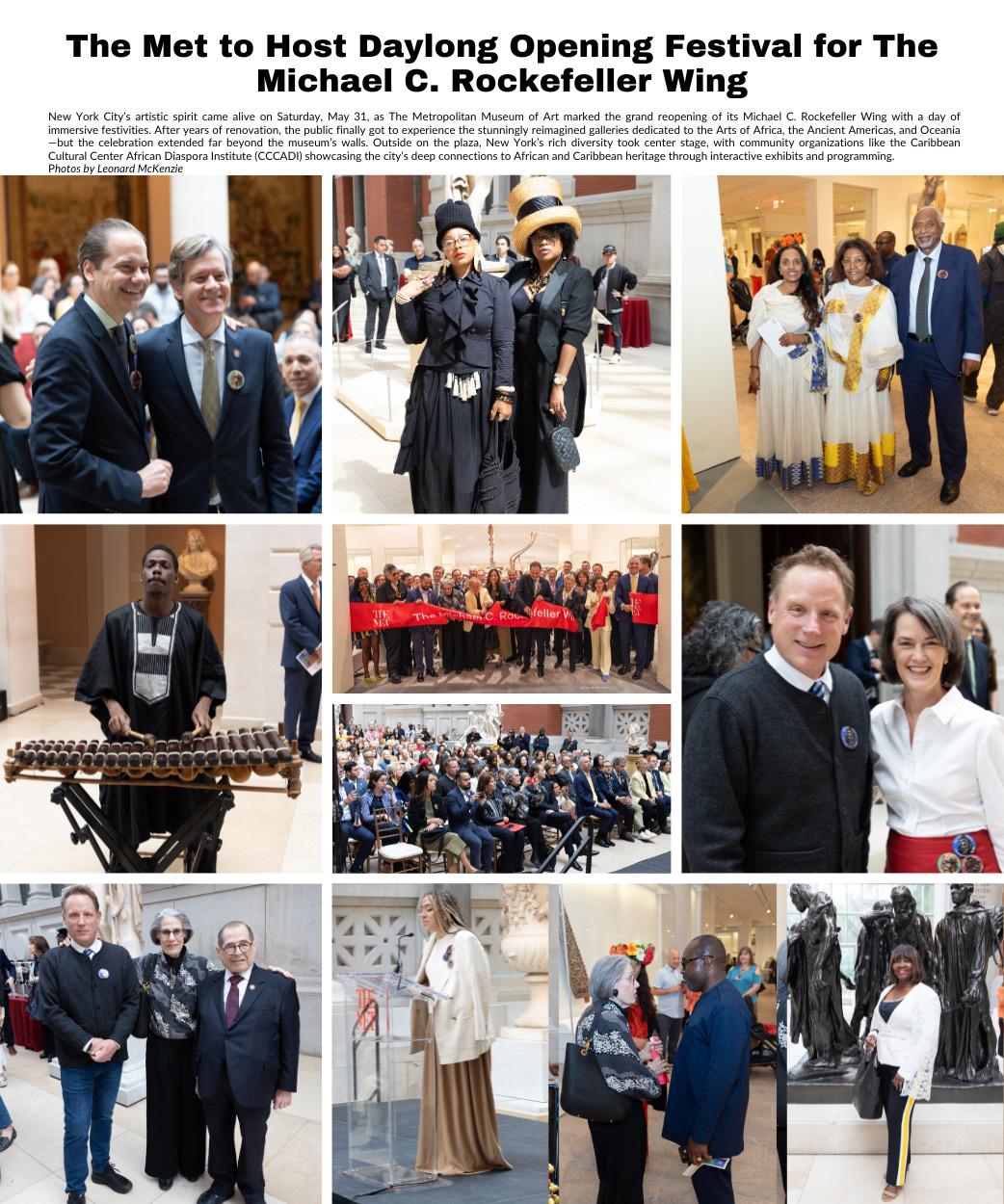
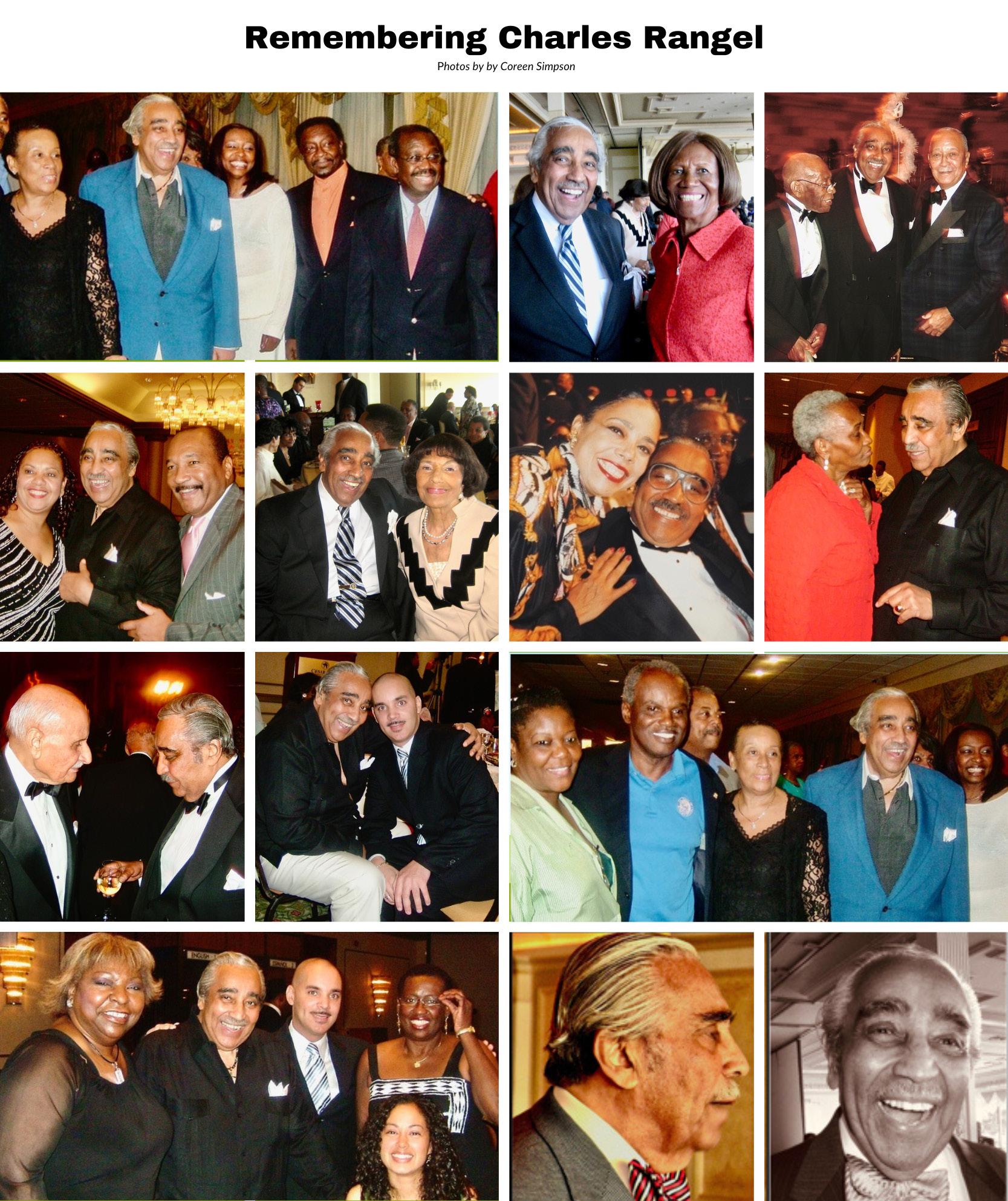
NEW YORK, NY – The family of retired Congressman Charles B. Rangel announces a series of activities to honor his remarkable life and legacy leading up to his funeral service at St. Patrick’s Cathedral. Congressman Rangel, a steadfast champion for Harlem and the nation, as well as a distinguished figure in American politics, will be memorialized in the coming days, with opportunities for the public to pay their respects.
Public Activities
Lying in Repose
St. Aloysius Church, 219 W 132nd St, New York, NY 10027
June 9 & June 10, 12:00 PM – 8:00 PM
Congressman Rangel will lie in repose at St. Aloysius Church. Members of the public, especially his beloved Harlem community, are invited to visit the Church to pay their respects.
Lying in State City Hall, New York, NY
June 11 & June 12
Congressman Rangel will lie in state at City Hall, offering the community and dignitaries a formal opportunity to honor his service and dedication to the nation.
Funeral Service (Mass)
St. Patrick’s Cathedral, 5th Ave between 50th St. and 51st St., New York, NY 10022
June 13, 9:45 AM
Originally planned as a private service, this Mass is open to the public, celebrating the life of
Congressman Rangel. Seating will be limited, but the public is welcome to join the family in remembering a leader who dedicated his life to service.
Link for the stream: https://youtube.com/ live/bEOleKKbIZo?feature=share

by

The corridors of power in Washington have lost one of their most compelling voices: Charlie Rangel, Dean of New York’s Congressional delegation and the first African-American to chair the House Ways and Means Committee. He died Monday at the age of 94.
For those of us who worked the trenches of Caribbean diplomacy through the decades of the 1970s and 1980s, Charlie Rangel’s passing marks the end of an era when kindred minds could bridge the chasm between Caribbean developing states and the world’s most powerful democracy. For he was a colleague, in the struggle for racial equality and justice.
We became political colleagues and personal friends. As Jamaica’s Deputy Prime Minister and Minister of Foreign Affairs
during the critical years of the late 1970s, and later as Prime Minister for fourteen years, I witnessed firsthand Charlie Rangel’s unwavering commitment to Caribbean development.
This was no mere diplomatic pleasantry. When Jamaica faced the crosswinds of global ideological turbulence and conflict our commitment to non-alignment was unequivocal, Charlie provided crucial balance in Congress.
Congressman Rangel understood that small nations needed room to breathe, space to develop their own foreign policies without being forced into rigid hegemonic boxes.
His support helped Jamaica maintain its independence while building constructive relationships with the United States.
Charlie often reiterated the long and continuing friendship between himself and Jamaica emphasizing: “I have warm feelings for Jamaica and will continue to be a friend to Jamaica.”
Charlie’s advocacy went beyond trade policy to encompass the full spectrum of bilateral relations. During my Prime Ministerial, he was rewarded with membership in the Order of Jamaica for his outstanding contribution in promoting the interests of Jamaica and the Caribbean. This honour, rarely bestowed upon non-nationals, reflected genuine appreciation for four decades of consistent support through both Republican and Democratic administrations.
In a world increasingly dominated by algorithms and artificial intelligence, Charlie
Rangel represented something irreplaceably human: the capacity to see beyond boundaries, to build bridges across difference, and to use power in service of those who have none of it except the democratic exercise of the right to vote.
That may be the most fitting epitaph for a man who traveled from the streets of Harlem to the pinnacles of American political power, never forgetting where he came from or who sent him there.
Rest in peace, Charles Rangel. Your work is done, but your legacy endures in every Caribbean success story, in every trade agreement that opened markets rather than closed them, and in every reminder that we share a single planet on which all mankind should dwell in harmony.

Introducing the newest village at Beaches® Turks and Caicos.
Meet Treasure Beach Village, an immersive island playground where sand and sea meet in perfect harmony. From brand-first suites to world-class dining, every moment is designed for amazing vacationing and easy fun. The deeper your clients dive, the close they’ll become — to the ocean, the island, and each other.
Here, play comes easy. Guests can splash through winding water pathways, float in a zero-entry lagoon pool, and relax in suites designed to make them stop and stare. With 11 all-new room categories — including the first-ever CrystalSky Reserve Villas


and the mega-spacious Chairman’s Penthouse Suite — your clients will have space to roam, adventure, and always come back together.
Cravings? Consider them covered. From craft coffee at Bru to the firstever Beaches Butch’s Island Chop House, plus a world of flavors at Pinta Food Hall, every meal tells a story they’ll never forget. Catch a movie at the Starfish Cinema or the stars from the balcony – whatever they’re in the mood for, we have it. And with all of Beaches Turks and Caicos next door, there’s a legendary sandbox to explore.
The real treasure here? Moments and laughter shared together, under the Caribbean sun.


Here comes the sun! It’s June and Caribbean Week in New York returns, reminding one of our region’s biggest source markets what makes our island destinations unique in the world. For readers of Carib News, the work of the Caribbean Tourism Organization (CTO) to turn a spotlight on the region is not new. As a part of this community, you understand and appreciate the crucial role of tourism in uplifting the places of your heart. This is important work.
I know this job well and I extend heartfelt gratitude to New York’s vibrant Caribbean Diaspora community that are often the first introduction visitors experience on their journey to our shores. You may not realize it, but as you share your warmth, music, food and lilting conversation, you are sharing the
beauty of our islands with the world. Tourism remains the heartbeat of our region, creating essential linkages that drive sustainable growth, employment, and prosperity. By letting your Caribbean light shine, you help ensure our communities thrive and our islands continue to flourish. That is the essence of why we celebrate Caribbean Week in NY and why this work matters. Thank you for proudly carrying our Caribbean spirit forward.
Adam Stewart, Executive Chairman, Sandals Resorts International
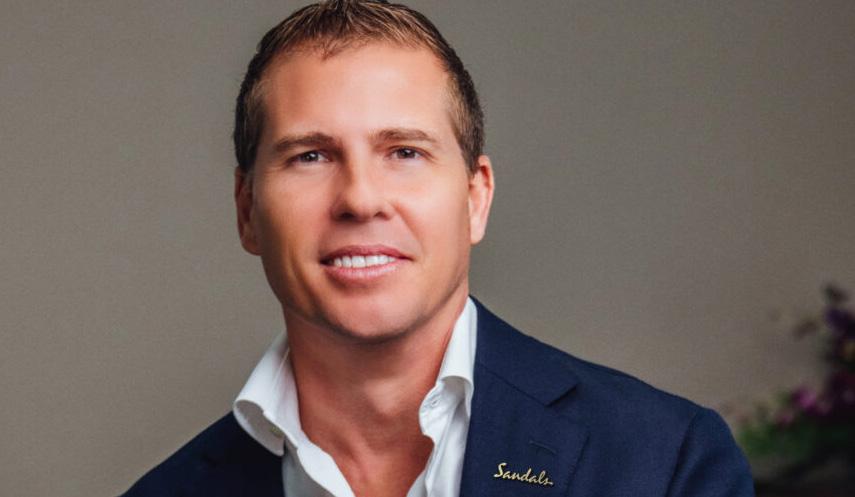
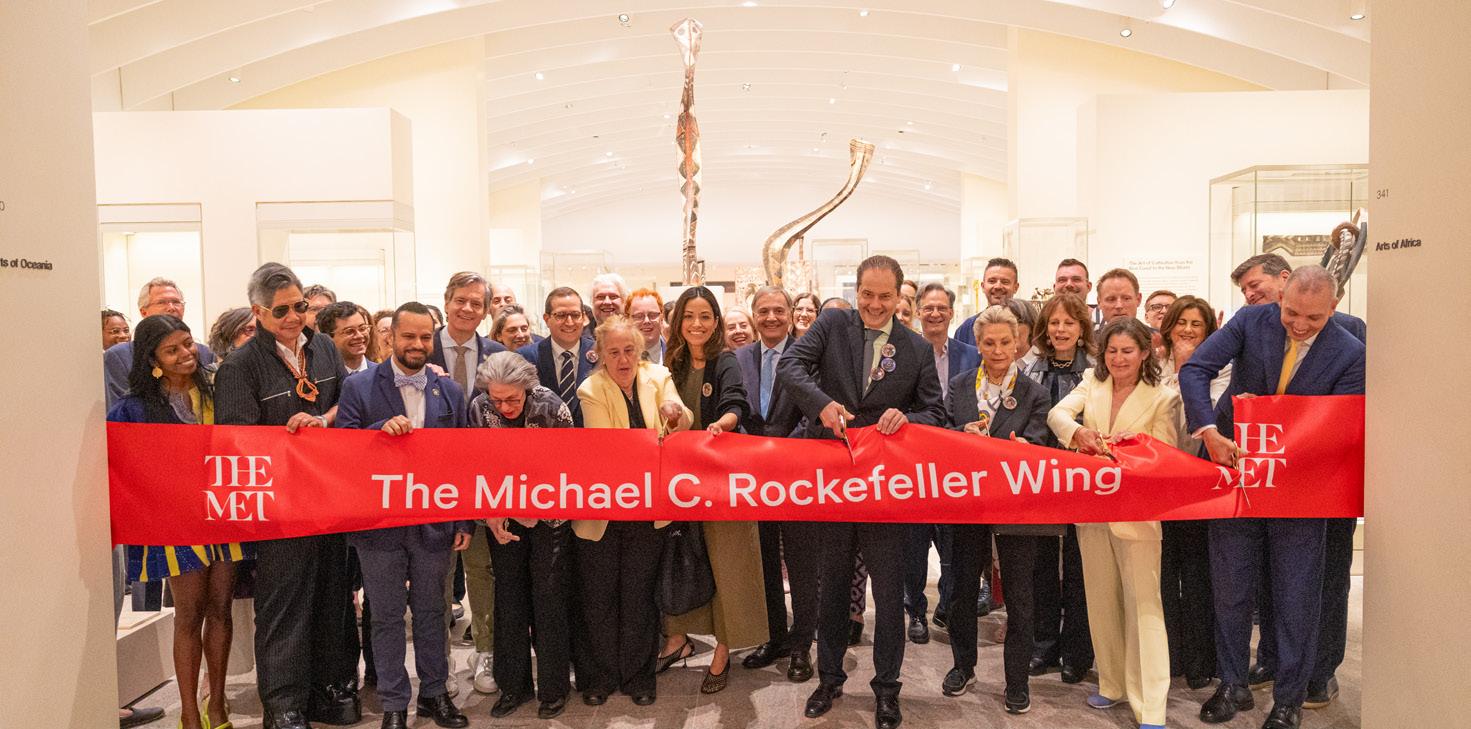
New York, NY — The Metropolitan Museum of Art officially reopened The Michael C. Rockefeller Wing for the Museum’s collections of the Arts of Africa, the Ancient Americas, and Oceania, with a ribbon cutting ceremony. Guests were greeted by performances from Real De Mexico in the Great Hall and by Asase Yaa Cultural Arts Foundation (ASASE) in The Met’s Milton Petrie European Sculpture Court where the event was held. Marques Marzan opened the program with a Hawaiian Ōlelo chant, followed by remarks by Max Hollein, The Met’s Marina Kellen French Director and CEO, Curator in Charge of The Michael C Rockefeller Wing Alisa LaGamma, The Met’s cochair of the board Candace Beinecke, Department of Citywide Administration Services Commissioner Louis Molina, Council Member Gale Brewer, Council Member Keith Powers, and State Senator Jose Serrano. The event concluded with a performance by ASASE and guests were invited to the reimagined wing for the ribbon cutting and viewing.
“It is with great joy that The Met officially
reopens the Michael C. Rockefeller Wing,” said The Met’s Director and CEO Max Hollein. “Today we celebrate art traditions from around the globe coming together in New York, one of the world’s most diverse and vibrant cities. We are grateful to New York City for its support of this reimagined wing which is now on view for New Yorkers and beyond for generations to come.”
“With the opening of the Met Museum’s renovated Michael C. Rockefeller Wing, the arts of Africa, the Ancient Americas, and Oceania have the extraordinary home they deserve,” said Cultural Affairs Commissioner Laurie Cumbo. “This city is proud of its support for this historic project, which has invested tremendous care, thoughtfulness, and collaboration into the redesign of galleries that house incredible, transcendent works of art from across history and cultures. Now, the museum’s millions of annual visitors can see these collections in a whole new light, and be inspired by the artistry, vision, and stories that are captured by the exhibitions within. We congratulate everyone who
worked to bring this project to life, and encourage all New Yorkers to come see it for themselves.”
“DCAS is proud to have supported the Met’s renovation of the Michael C. Rockefeller Wing with nearly $23 million in funding, helping deliver critical energy efficiency upgrades that will reduce emissions and protect our climate,” said NYC Department of Citywide Administrative Services Commissioner Louis A. Molina. “This project is a powerful example of how city government, cultural institutions, and sustainability goals can align to create lasting impact. We’re honored to be part of this transformative effort and look forward to seeing this space inspire generations to come.”
Council Member Gale Brewer added, “The newly reimagined Michael C. Rockefeller Wing at The Met is a triumph—not only of design and scholarship, but of cultural respect and inclusion. This renovation elevates the arts of Africa, the Ancient Americas, and Oceania to their rightful place in the global narrative of human creativity. As a proud supporter of our city’s cultural institutions, I celebrate The Met’s commitment to expanding understanding, showcasing Indigenous voices, and creating a museum experience that reflects the diversity of New York City and the world.”
The transformation of the Michael C. Rockefeller Wing will showcase extensive collections, artifacts and works that span five continents and trace thousands of years of history,” said Council Member Keith Powers. “These newly renovated galleries allow for further engagement with the rich history displayed at the Met. I’m proud to support the stunning new
wing, and I look forward to these collections being once again available to New Yorkers and the world.”
“The Metropolitan Museum of Art’s Michael C. Rockefeller Wing houses historic collections of art and artifacts that span thousands of years across continents,” said Speaker Adrienne Adams. “The City Council is proud to invest millions of dollars in capital funding for the Met in recent years that has enabled this important renovation, allowing the Rockefeller Wing to better utilize its existing footprint. Our vital institutions make New York City the cultural capital of the world, and the Council will continue to champion funding to support the vibrancy of our arts and cultural sector.”
State Senator Jose Serrano remarked, “As Chair of the Senate Committee on Cultural Affairs, Tourism, Parks and Recreation, I firmly believe the arts and culture are transformative, providing countless opportunities for education, discussion, and exploration. The reopening of Michael C. Rockefeller Wing will help ensure an even more meaningful experience for visitors to the galleries dedicated to the Arts of Africa, the Ancient Americas, and Oceania. I congratulate The Metropolitan Museum of Art for completion of this important project.”
Following the ceremony, The Met commemorated the public opening a daylong celebration for the new wing including special programs and art-making activities for all ages, performances reflecting the arts and cultures of Africa, the Ancient Americas, and Oceania, film screenings, artist demonstrations and workshops, and food experiences, as well as the opportunity to explore the new galleries.
Minister without Portfolio in the Ministry of Economic Growth and Job Creation, Hon. Matthew Samuda, gave the update during his contribution to the Sectoral Debate in the House of Representatives on May 27. The policy seeks to increase access to and improve the standard and maintenance of beaches available to the public. It was developed after broad-based consultations, including with the private sector, civil society and public commentary. Minister Samuda said that the policy will balance the rights and
expectations of citizens with that of local and foreign investors while adhering to the laws of Jamaica.
“Beach Access doesn’t require policy solely. It requires investment and coordinated development. It is for this reason that the Government, through the efforts of the Tourism Enhancement Fund (TEF), the Urban Development Corporation (UDC) and the Fisheries Division (Ministry of Agriculture, Fisheries and Mining) continues to expand and improve beach access,” he pointed out. (JIS)
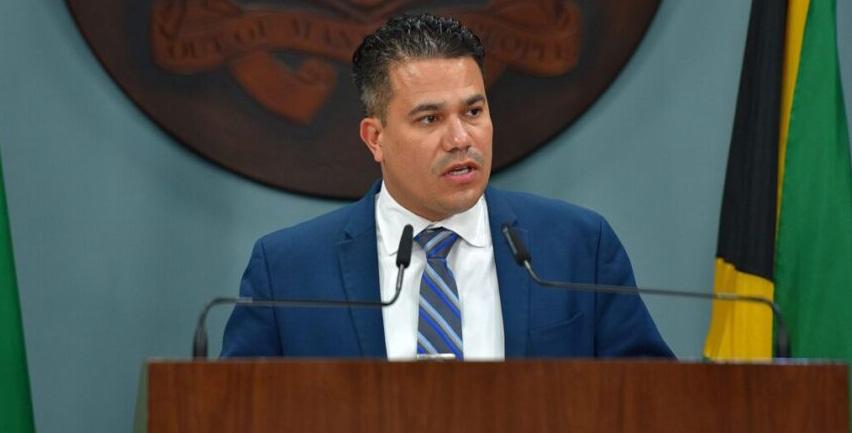

NEW YORK — The Caribbean Tourism Organization (CTO) has added an exciting new event to the Caribbean Week in New York (CWNY) 2025 schedule: the Caribbean Cultural Showcase. Celebrating Caribbean music, dance, cuisine and artistry, the event will take place at The Westin New York at Times Square on Thursday, June 5, from 4 pm to 8 pm.
The Caribbean Cultural Showcase will provide attendees with an immersive experience of authentic Caribbean culture, featuring performances, culinary delights, and displays of island artistry. Visitors will have the opportunity to win trips to various Caribbean destinations and access exclusive travel deals available only during the event. To purchase tickets, go to Caribbean Cultural Showcase.
“We’re thrilled to introduce the Caribbean Cultural Showcase as part of our expanded Caribbean Week program,” said Dona Regis-Prosper, Secretary-General and CEO of the CTO. “This new addition reflects our commitment to sharing the rich cultural tapestry that makes our region so
unique. Beyond our beaches and natural beauty, the Caribbean’s diverse heritage, expressed through our music, dance, art and cuisine, is a powerful tourism asset that resonates with travelers seeking authentic experiences.”
CWNY 2025’s theme, “Caribbean Resilience: Crafting Tomorrow’s Tourism,” aligns perfectly with the Caribbean Cultural Showcase – as the aim is to highlight the region’s cultural heritage as a cornerstone of sustainable tourism development. The event provides a platform for the Caribbean diaspora communities in New York to reconnect with their roots while introducing potential visitors to the rich experiences awaiting them across the region.
Caribbean Week in New York 2025 remains the premier Caribbean tourism event in North America, offering stakeholders unparalleled engagement opportunities with industry leaders, media representatives and travel enthusiasts. For more information, visit caribbeanweek.com. (CTO)

The New York Immigration Coalition (NYIC) is warning that the decision by the United States government ordering its embassies worldwide to freeze issuing student visas could severely threaten Caribbean and other international students.
NYIC, an umbrella policy and advocacy organization that represents over 200 immigrant and refugee rights groups throughout New York, said that the Donald Trump administration has directed US
embassies to temporarily halt the scheduling of interviews for new student visa applications as they prepare to include social media screenings for these individuals as part of the application requirement.
NYIC said that student applicants who already have visa interviews scheduled may still proceed with the application process.
“The Trump administration’s latest move to pause new student visa appointments is another reckless and harmful decision...
Trinidad and Tobago is celebrating a cultural triumph as pannist Joshua Regrello has officially secured a place in the Guinness World Records for the longest steelpan performance marathon—playing non-stop for 31 hours.
The achievement, which took place in San Fernando on December 27, 2024, was recently confirmed by Guinness, making Regrello’s name synonymous with international excellence in the art of steelpan.
The feat has sparked nationwide pride and
earned high praise from government officials, cultural organisations, and citizens alike.
Minister of Culture and Community Development, Michelle Benjamin, described the moment as a shared national victory, spotlighting Regrello’s determination and the cultural power of the steelpan.
“It shows what is possible when talent, hard work, and love for culture unify,” she said in an official statement.
Bronx Councilman Kevin C. Riley, family, friends, and reggae music enthusiasts gathered in the Bronx recently to honor and salute Jamaican-born, Bronx-based record store owner Earl Moodie by renaming the corner of Whites Plains Road and 225th Street in his honor: ‘Earl Moodie’s Way.’
A towering figure in the reggae music scene, Mr. Moodie is best known as the founder of Moodies Records, a legendary hub for reggae vinyl records and culture that became a cultural
bridge between Jamaica and New York City. For more than four decades, Moodies Records served as a vital pipeline, bringing the sounds of Jamaica and the Caribbean to the streets of the Bronx and beyond.
Councilman Riley, who in partnership with the Moodie’s family helped to orchestrate the street renaming shared, “I’ve known about Moodies Records since I was a child. My dad and I used to visit the store often, spending time together listening to music. It was always powerful to





watch him connect with his friends. Music was the driving force that brought them together and created a sense of fellowship and community,” he said. “People truly understand how much this business meant to all of us,” reiterated Avril Francis, Community Liaison for Councilman Riley.
Reggae singer Richie Stephens, who first met Mr Moodie nearly 30 years ago praised the business stalwart saying, “His influence resonated far beyond the walls of his iconic music
store in the Bronx. He committed himself to promoting reggae music and fostered a space where music lovers and artists like myself could gather and interact over shared rhythms and stories. The renaming of 225th Street stands as a powerful symbol of cultural pride and community appreciation, ensuring that Moodie’s contributions to reggae music and the Bronx community will be remembered for generations to come,” he explained. Continued at www.nycaribnews.com

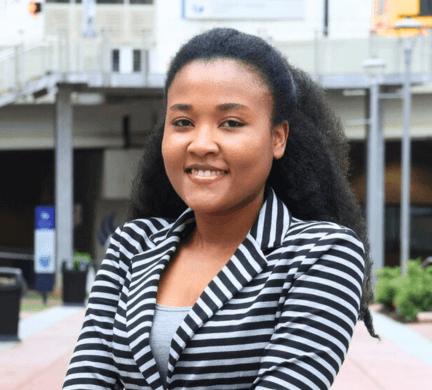
ATLANTA – For Dr. Catherine Scipion, the journey into Alzheimer’s disease and related dementias research began in the rural regions of Haiti, where she witnessed firsthand the challenges of providing care to patients with dementia in resource-limited settings. Today, as a postdoctoral researcher at Georgia State University’s School of Public Health, Scipion is breaking new ground with research that could transform dementia care for underserved populations.
Scipion was recently awarded an Alzheimer’s Association International Research Grant to study dementia in Haiti, where virtually no epidemiological data currently exists on the disease.
“We don’t have any data available in terms of proportion, risk factors of dementia among those populations, or the challenges and barriers when it comes to seeking care,” Scipion explained. “Based on my literature review before applying for the grant, we don’t have any epidemiological data available for this specific population.”
Filling a Critical Gap in Dementia Research
The absence of data means Haiti is excluded from regional prevention and support efforts currently underway in other parts of the Caribbean. Scipion’s research aims to change that by collecting the first comprehensive dataset on dementia in Haiti, with plans to expand to other French-speaking Caribbean nations. Her path to this pioneering research began after completing her medical degree in Haiti in 2017. She chose to work in a remote area of southern Haiti with a non-governmental organization, where she served as an attending physician for nearly four years before being promoted
policy issues related to dementia. This mentor-mentee relationship continued after Scipion completed her MPH, when she seized the opportunity to stay at Georgia State as a postdoctoral researcher in Arias’s lab.
Scipion’s thesis examined the care pathway of people living with frontotemporal dementia, specifically looking at how Medicaid expansion under the Affordable Care Act influenced diagnosis and treatment. Her current research expands on this foundation but with a focus on Haiti and the broader Caribbean region. Scipion’s ultimate goal is to create culturally appropriate care pathways to improve the diagnosis and treatment of Alzheimer’s.
“The care pathway includes diagnosis— from the moment a person starts developing symptoms and is seeking diagnosis— to treatment and long-term care services,” Scipion explained.
culturally adapted diagnostic tools and approaches for these populations.
A Vision for the Future
“I’m hoping to develop tools that consider the cultural and social beliefs and backgrounds of these particular populations,” she said. Her collaboration with Dr. Jorge Llibre-Guerra, an assistant professor at Washington University who conducts similar work in Cuba, may eventually allow for comparative studies across different Caribbean populations and their diasporas.
to coordinator of the chronic diseases program.
“That’s actually where my interest in public health started,” she said. “Witnessing the lack of access to care for people dealing with chronic diseases, both in terms of financial and economic challenges, but also because of geographical and physical challenges of the area.”
This experience inspired her to pursue further education in public health. Scipion’s academic journey took an exceptional turn when she was awarded not one but two prestigious scholarships—a Fulbright scholarship and a European scholarship from the Academy of Research and Higher Education. This allowed her to complete two master’s degrees in public health, one focusing on research methods applied to global health and another in health management and policy at Georgia State University.
When deciding where to pursue her studies in the United States, Scipion carefully researched her options, consulting with former Fulbright scholars from Haiti and professionals working in public health in Georgia.
“Based on the information I gathered, it was clear that Georgia State was the best option for me,” she said. “The program is very strong because it has professors who have a lot of research experience and also faculty with experience at agencies like the CDC and WHO, which is a great benefit for students.”
Building a Foundation at Georgia State At Georgia State, Scipion began working with Professor Jalayne Arias as a graduate research assistant, focusing on ethical and
Her work has significant implications not only for Haiti but also for Haitian immigrants in the United States and other countries. Through her volunteer work with an NGO in New Jersey, Scipion observed that healthcare providers often lack
Scipion’s long-term goal is ambitious but vital: to develop an evidence-based, culturally appropriate care pathway for dementia that works in resource-limited settings. Her current project represents the first step in what she describes as “a long road” to supporting families and patients dealing with dementia in underserved populations.
“This project is going to have a big impact,” she said, “not only in terms of advancing research in this field but also in terms of actionable efforts to support families dealing with dementia.” (GSU)

Barbadian-born global superstar Rihanna is grieving the loss of her father, Ronald Fenty, who passed away at age 70 following a brief illness.
The news was first reported by Starcom Network on Saturday, noting that family members had gathered in California, where Fenty died in the early hours of the morning. PEOPLE magazine has since confirmed the report, although the official cause and exact date of death have not been released.
Ronald Fenty is survived by his children, including Rihanna (Robyn Rihanna Fenty), daughters Kandi, 54, and Samantha, 44, and
sons Rajad and Rorrey, 35. He is also survived by his former wife, Monica Braithwaite, with whom he raised Rihanna and her brothers in Bridgetown, Barbados. Ronald worked as a warehouse supervisor, while Monica was an accountant.
Rihanna, 37, has not yet made a public statement regarding her father’s passing. The news comes just days after reports surfaced that her brother Rajad had been seen at Cedars-Sinai Medical Center in Los Angeles, with unconfirmed claims that the singer was also present at the hospital.
Rihanna’s relationship with her father has long
been marked by complexity and evolution. During a candid interview with Oprah Winfrey, she shared that despite his past issues with her mother, Ronald was an important figure in her life.
“He taught me everything, and as awful as he was to my mom at times, it didn’t compare to how great he was as a father. I had to come to terms with that, and I was able to close that gap with him,” she said.
In 2019, Rihanna filed a lawsuit against her father, alleging that he had misused her name for personal financial gain. The matter was later dropped before reaching trial, suggesting that
the two may have found resolution. Ronald Fenty remained publicly supportive of his daughter, especially in her relationship with rapper A$AP Rocky, with whom Rihanna shares two young sons, Rza and Riot. The couple is currently expecting their third child. “He’s such a cool guy. Very respectable. He’s taking to fatherhood very well,” Fenty told PageSix in 2023.
As the Fenty family mourns privately, fans around the world have taken to social media to express condolences and reflect on the journey of a father and daughter who weathered their differences in the public eye.
Port-of-Spain – Trinidad and Tobago’s Finance Minister, Davendranath Tancoo, has called for an official investigation into the substantial foreign exchange payments reportedly made to Jamaican dancehall artist Adidja “Vybz Kartel” Palmer, in connection with the now-controversial One Caribbean Music Festival.
According to event organizers, Kartel was paid US$950,000 out of a US$1.3 million contract before withdrawing from the event due to alleged breaches of contractual obligations.
Several other artists, including Sizzla Kalonji, Malie Donn, Rvssian, and Ghanaian-American
singer Moliy, also pulled out under similar circumstances.
In response to questions about how organisers secured such large amounts of U.S. currency amid ongoing forex shortages, Tancoo said, “I am also intrigued by the amount of foreign exchange being mentioned in the media reports… I have requested the Ministry of Finance to investigate and report on these matters.”
He emphasized that the inquiry is a “fact-finding effort” and not an accusation of wrongdoing. “Our Government is fully supportive of

private-sector development in the music and entertainment industry to boost foreign exchange and contribute to GDP,” Tancoo added. Police and FIU Monitoring Developments
Acting Police Commissioner Junior Benjamin also weighed in, suggesting the case warrants attention from financial investigators. “It might be something of great concern,” he said, referencing the criminal charge reportedly pending against one of the event’s main promoters. He confirmed that he would engage the Financial Intelligence Bureau (FIB) and Financial Intelligence Unit (FIU) for a review.
Justice Minister Wayne Sturge gave a cautious response when asked about the situation. “Given my role and experience in the justice system, I believe it’s best that questions be directed to the Commissioner of Police and the FIU to avoid any perception of interference,” he stated. Although Saturday’s event at the Queen’s Park Savannah was marketed as sold out, attendance was sparse following Kartel’s last-minute cancellation. Frustrated patrons demanded refunds, and videos of chaos—ranging from stage invasions to attendees venting their anger—flooded social media.
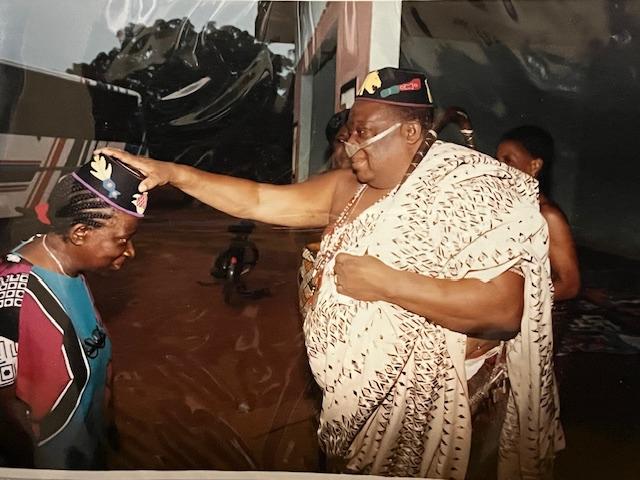
We love you. We miss you…we will remember you …daughter Vinette K Pryce and Kahlil T. Goodwyn, grandson

